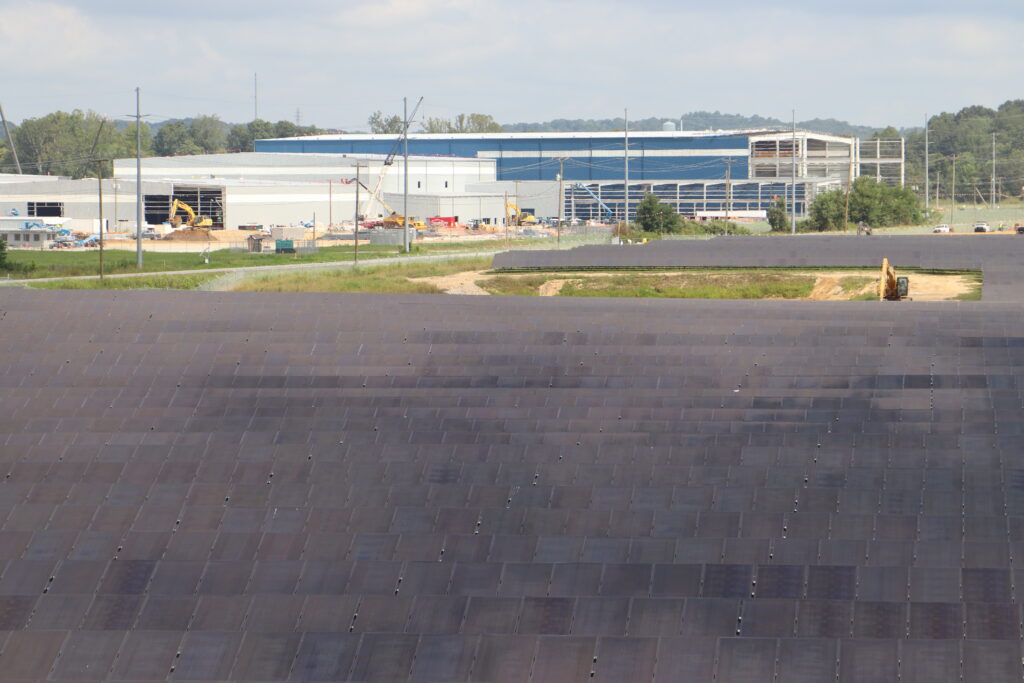A titanium factory that’s powered by renewable energy is in the final months of construction in Jackson County.
The land between West Virginia Highway 2 and the Ohio River rumbles with the sound of heavy machinery. Workers in hard hats and safety vests move about, dirt caked on their boots.
It’s the scene of construction of the first phase of a titanium smelter, powered by electricity generated from the sun.
This is a unique project for West Virginia. A metal manufacturer, Timet, will use electricity produced across the highway at a solar facility run by Berkshire Hathaway Renewables.
Aaron Valentine, the Timet plant manager, explains that a battery system will also be used.
“We’re charging the batteries during the day, while we’re also consuming some of the energy, and then at night, we would be discharging the batteries,” he said.
It’s clear that the site has room to expand. Valentine says that could happen, depending on market conditions.
“We have about 100 acres here to develop, total for the titanium melt site. About 50 acres of that is currently under development,” he said. “And we have 50 more acres that we could, we could do a phase two or three down the road.”
The site once employed hundreds of workers at Kaiser Aluminum, later Century Aluminum. Those operations ceased in 2009.
Valentine says he has about 50 members on the Timet team, and by next year, that number will increase to 200. Construction brings about 270 workers to the site each day, and he says that number will double in the next few months to get the plant ready for operation in the 4th Quarter.
It’s a turnaround for an area that lost so many workers when the aluminum plant closed.
“We’re really trying to employ as many local folks as we can, and it actually is a draw for people who accepted opportunities elsewhere and then want to come back to the state,” he said. “So that’s really positive.”
The titanium produced here will be used in aerospace and for medical implants, he says.
Across Highway 2, solar panels blanket the landscape on all sides. Not all of them have been installed yet, and Berkshire Hathaway has yet to drill under the road to get the power to Timet.
Andrew Robinson is the regional business director for BHE Renewables.
“What you’re looking at being constructed right now is phase one of three,” he said. “So phase one through three will be specifically to power Timet and it’s designed, custom designed to power Timet’s needs.”
The battery system has yet to be completed. It will not use the typical lithium-ion batteries, like those in electric vehicles. Brian Hargett, the site manager, explains why the company chose lithium-iron phosphate instead.
“It’s able to have a longer discharge time and handle more cycles,” he said.
They also last longer, he says.
“Typical lithium-ion lifespan is probably between 10 to 20 years,” he said. “These can go 20 to 25 years.”
The solar site will generate 106 megawatts. When it becomes operational, it will produce five times the power of the state’s current largest.

























